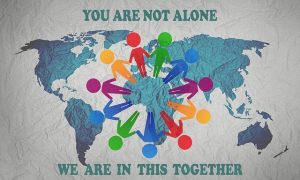So you’ve been feeling a tad Covid.
So you order a test, which arrives.
First off, they give you a three D cardboard box net to construct.
Great, you’re right at the top of your game. Love origami.
Not sure what it’s testing for though? Spatial awareness?
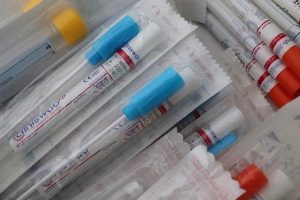 Then a series of bags and containers that have to be assembled very carefully in a specific order, Russian doll-like, when you do the actual test. Weird, I thought I’d already started, and then I notice in the book of instructions – that was in the bag – that I shouldn’t open the bag without washing my hands for 20 seconds, and that I should also clean all the surfaces before I get them out, but I haven’t finished the box; but then I shouldn’t have started, because I’ve got to clean everything first. How the fuck am I meant to know that, as, to read it, I’ve had to open the bag? So now I clean everything because it’s wrong. Could have Covid on it. So I go back and I wipe everything and I think I’d better finish the box, or maybe not? Maybe I should unfold and start all over again, in case I’ve missed something in the instructions? When I do read the instructions, I say “thank goodness I didn’t just see the big cotton bug and stick it up my nose and throat,” and then it tells me to do that anyway, but it must be an hour before the collection at our priority letter box, and we mustn’t touch anything with the cotton bud apart from two and half centimeters up my nose and the back of my throat. By this time I’m feeling so much better: I mean I’ve made the box, laid everything out and I’ve cleaned everything three time,s and I’ve learnt a lot about my area and where our priority post boxes aren’t, probably super spreading all the while. So then I find the link to the you tube video – which is handily in the booklet – so much easier to click on a link in paper instruction booklet – or rather it isn’t – but I manage to type it and link to Ali, the nice man who explains everything handily and simpl,y including which things might not be in the kit they’ve sent me. He says he know it’s a bit fiddly and frustrating but not too much he hopes, as I guess I could be feverish and confused at this point. He then reminds me to wash my hands for twenty seconds exactly. I nearly scald myself with the tap, but guess that’ll kill Covid as well. He also shows me how to stick a cotton bud in my throat and up my nose without touching anything else with the fabric. This all needs to go into the tube with liquid, and I must snap off the handle and close the tube without contaminating the contents. At this point I have a headache and have discovered how to stimulate a gagging reflex from the back of my throat without touching anything else. But have I rubbed my tonsils, and who knew they weren’t the dangly bits, for fecks sake? Also, this is where it goes into a second tube- that I don’t have – and into two bags: one labelled bio hazard and the other with a pinch seal. All in a specific order, which is then all packaged in my handcrafted origami box, which has a special seal sticker that is in the bag in the box. Bollocks; still, it’s all part of a test, so I backtrack and seal the box thankfully with all the contents. I’m now running late for the priority collection, so in my feverish and somewhat confused state I, masked to the eyeball, stagger to the priority post box, narrowly evading non-socially-distancing pedestrians who ring the post box.
Then a series of bags and containers that have to be assembled very carefully in a specific order, Russian doll-like, when you do the actual test. Weird, I thought I’d already started, and then I notice in the book of instructions – that was in the bag – that I shouldn’t open the bag without washing my hands for 20 seconds, and that I should also clean all the surfaces before I get them out, but I haven’t finished the box; but then I shouldn’t have started, because I’ve got to clean everything first. How the fuck am I meant to know that, as, to read it, I’ve had to open the bag? So now I clean everything because it’s wrong. Could have Covid on it. So I go back and I wipe everything and I think I’d better finish the box, or maybe not? Maybe I should unfold and start all over again, in case I’ve missed something in the instructions? When I do read the instructions, I say “thank goodness I didn’t just see the big cotton bug and stick it up my nose and throat,” and then it tells me to do that anyway, but it must be an hour before the collection at our priority letter box, and we mustn’t touch anything with the cotton bud apart from two and half centimeters up my nose and the back of my throat. By this time I’m feeling so much better: I mean I’ve made the box, laid everything out and I’ve cleaned everything three time,s and I’ve learnt a lot about my area and where our priority post boxes aren’t, probably super spreading all the while. So then I find the link to the you tube video – which is handily in the booklet – so much easier to click on a link in paper instruction booklet – or rather it isn’t – but I manage to type it and link to Ali, the nice man who explains everything handily and simpl,y including which things might not be in the kit they’ve sent me. He says he know it’s a bit fiddly and frustrating but not too much he hopes, as I guess I could be feverish and confused at this point. He then reminds me to wash my hands for twenty seconds exactly. I nearly scald myself with the tap, but guess that’ll kill Covid as well. He also shows me how to stick a cotton bud in my throat and up my nose without touching anything else with the fabric. This all needs to go into the tube with liquid, and I must snap off the handle and close the tube without contaminating the contents. At this point I have a headache and have discovered how to stimulate a gagging reflex from the back of my throat without touching anything else. But have I rubbed my tonsils, and who knew they weren’t the dangly bits, for fecks sake? Also, this is where it goes into a second tube- that I don’t have – and into two bags: one labelled bio hazard and the other with a pinch seal. All in a specific order, which is then all packaged in my handcrafted origami box, which has a special seal sticker that is in the bag in the box. Bollocks; still, it’s all part of a test, so I backtrack and seal the box thankfully with all the contents. I’m now running late for the priority collection, so in my feverish and somewhat confused state I, masked to the eyeball, stagger to the priority post box, narrowly evading non-socially-distancing pedestrians who ring the post box.
I then wait for three days. For a result which by the time it arrives; merely confirms the obvious: that I’m positive. Never has positive seemed so negative or vice versa.
But the test is still not over, as I now get sent a link for feedback to ‘test and trace’ (not ‘track n’ trace’)? Guess they’ve changed the name in case someone asks about the missing twelve and and a half billion. But to give them feedback I have to set an account with a password, so I offer my best password effort, and of course it’s found wanting, not strong enough. So I try a random selection of letters, symbols and punctuation. No, that won’t do, too short. I lengthen it and, oh no, it’s too sequential, so I try another and another. But they’re all sequences. Yes, surely that is the nature of a password. It has a beginning and a middle and an end. Finally, randomly, it accepts something.
What have I learnt?
That I wish hadn’t started.
I also know, two days after I need to know, that I can stop self-isolating, that is, if I haven’t developed another symptom, maybe confusion?

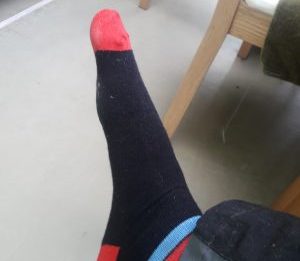
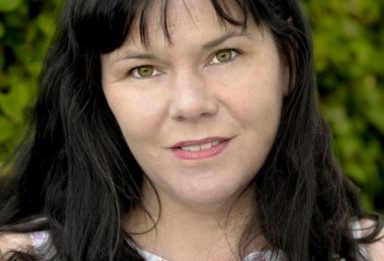
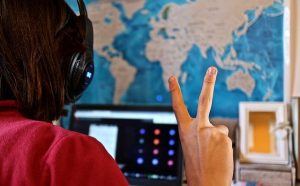 Right at the beginning of Lockdown, some friends and I decided to set up an online school.
Right at the beginning of Lockdown, some friends and I decided to set up an online school. 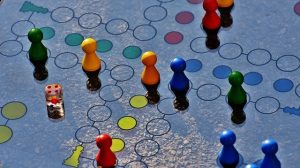 I had an online magazine, Notes From Xanadu, predominantly an arts review, which had been semi-dormant over the preceding five years. I had written a couple of
I had an online magazine, Notes From Xanadu, predominantly an arts review, which had been semi-dormant over the preceding five years. I had written a couple of  On 23 September 2020,
On 23 September 2020, 